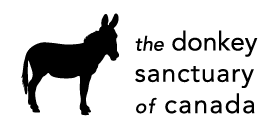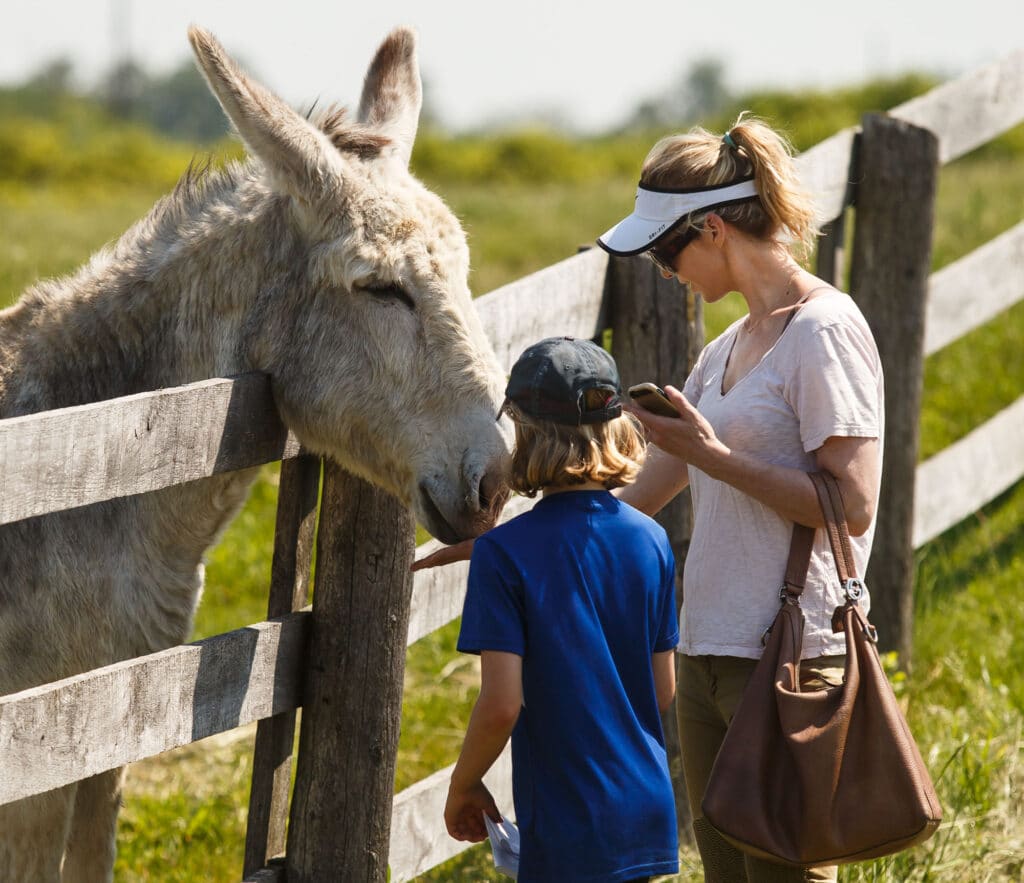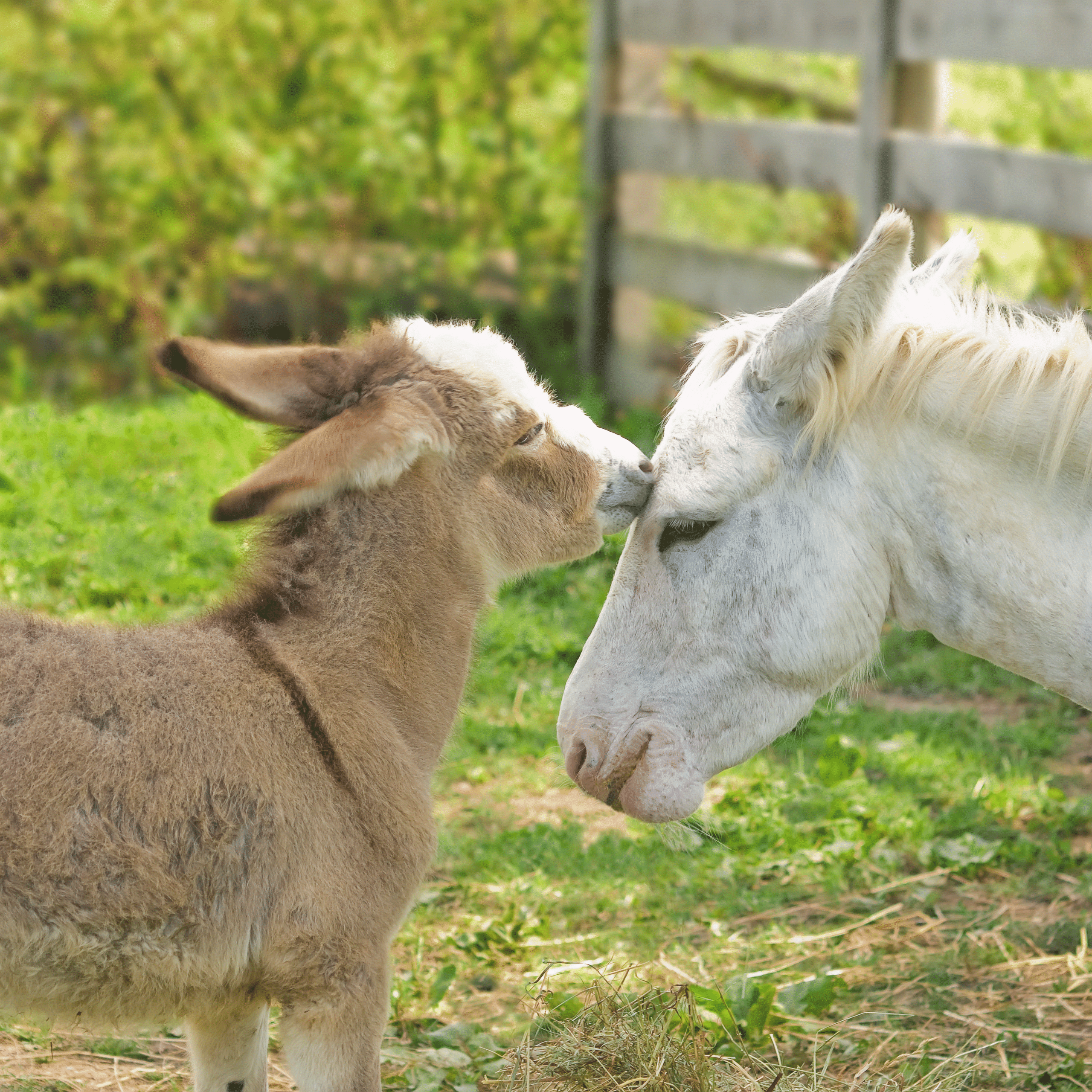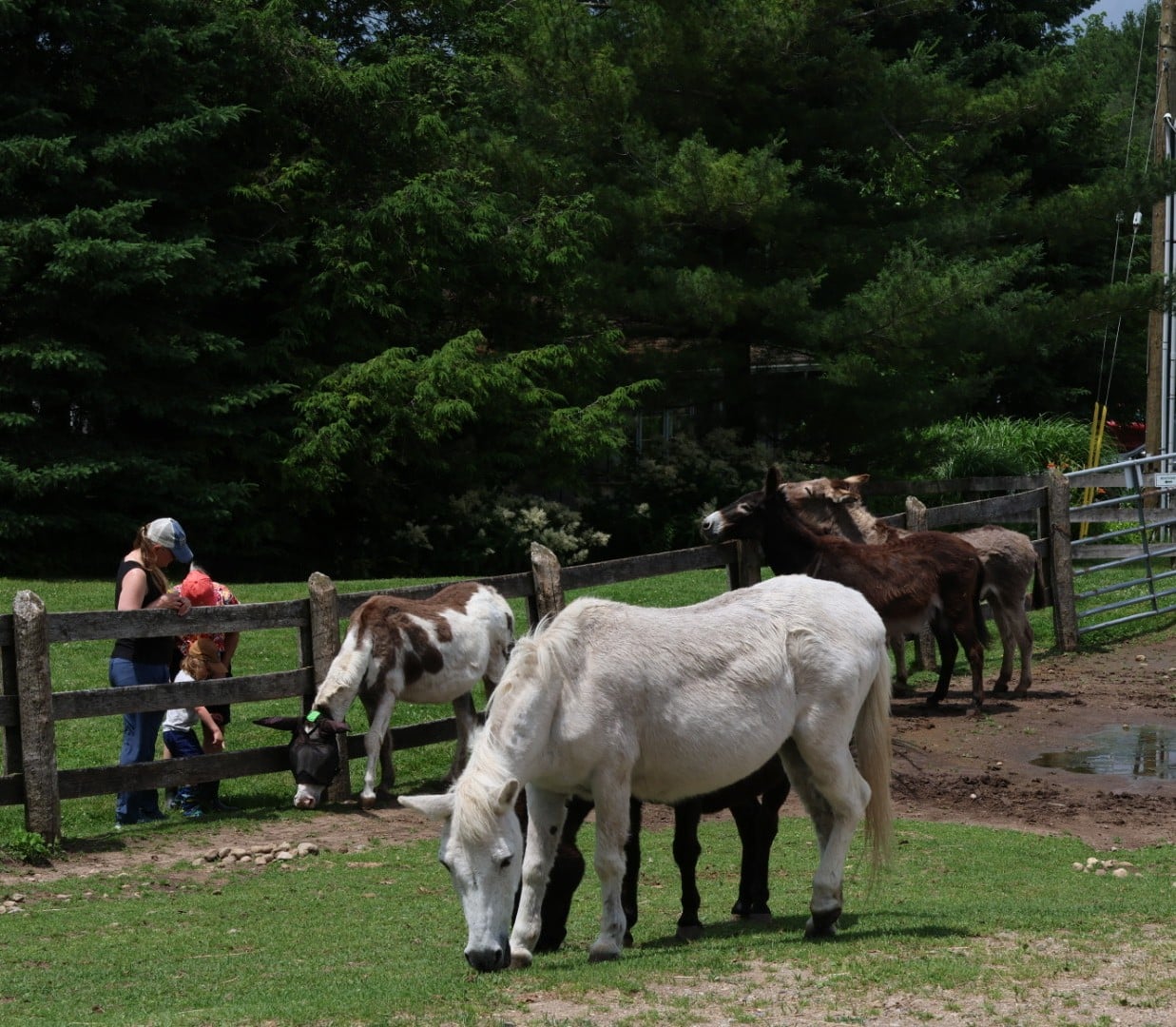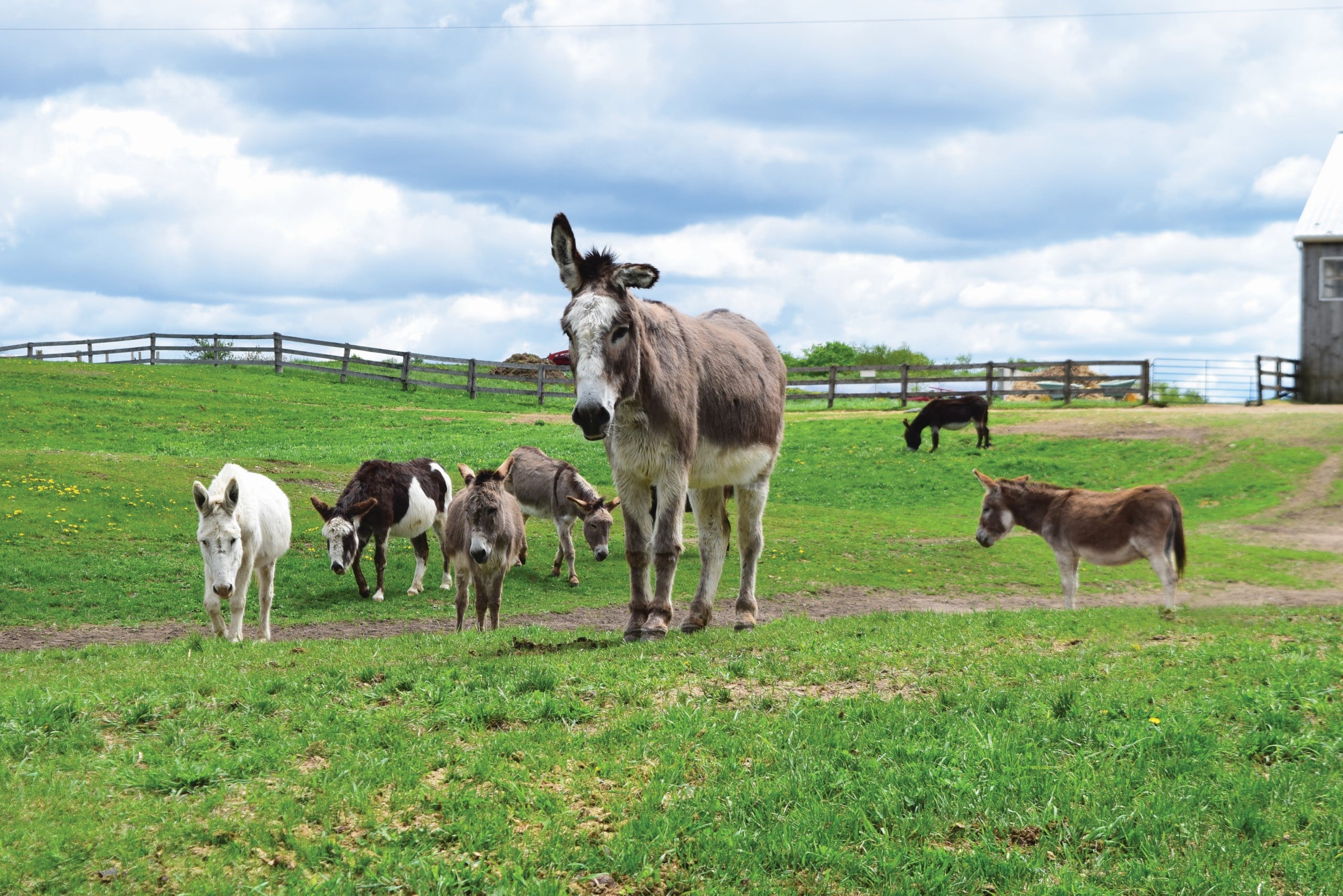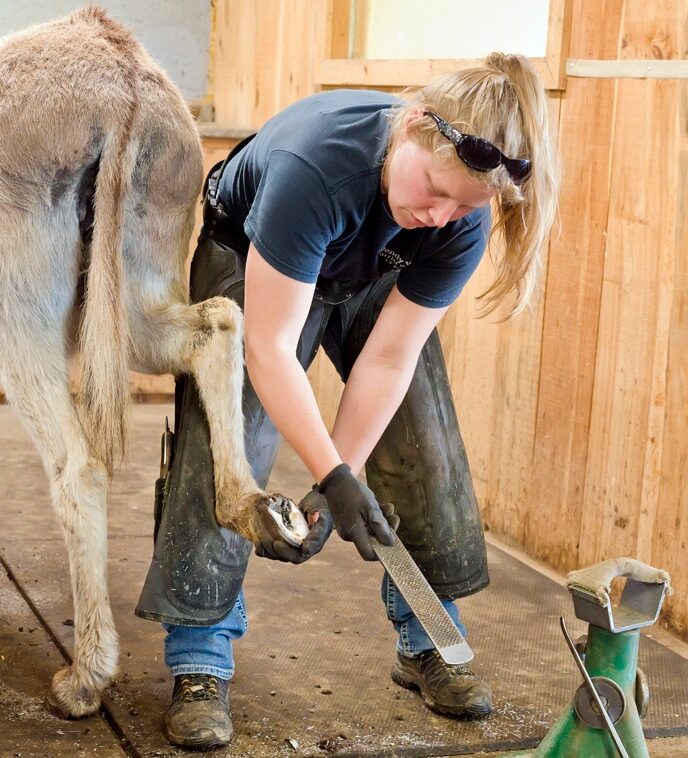Regardless of which reasons our residents come to us because of, virtually all of them require some form of rehabilitation.
This can be short- or long-term and come in the form of medical care and/or behavioral modification.
Medical Rehabilitation
Upon arrival, the average donkey requires an average of $500 of immediate care. Some require life-saving treatments and most require routine care, with many never having received a dental, hoof trim or vaccinations and deworming their entire life.
Commonly one or more of the following have to be addressed with our new arrivals:
- Hoof care, for routine and remedial needs
- Dental care, for routine and remedial needs
- Nutrition and exercise plans, for routine and remedial needs
- Therapeutic surgeries and treatments (ie. xrays, spinal manipulative therapy, castration)
- Medication plans (ie. Cushings, arthritis, equine metabolic syndrome, hormone therapy, ulcers)
The DSC Training Program
Approximately 40% of our residents arrive with a history of little to no training and handling. To combat a growing number of requests we have received to help donkeys and mules with behavioral problems, the DSC officially launched our Training Program in 2018.
Not unlike other pets, donkeys and mules benefit from loving and consistent handling and socialization from a young age. When they receive a lack of or mis- treatment, they can become fearful of people. Especially due to their larger size in comparison to other companion animals like dogs, a lack of training makes it difficult and even dangerous to care for donkeys and mules. In our case, it can also prevent us from providing crucial and sometimes life-saving treatments.
Many are so fearful of being touched that they may require several months or even years to build up their trust in us. Thankfully, our Training Program has been invaluable in helping our residents overcome their fears and learn to trust people again.
